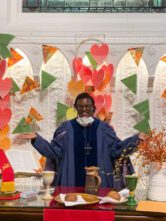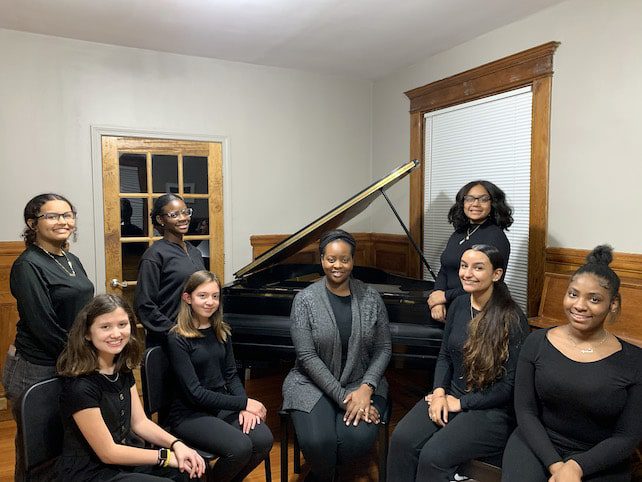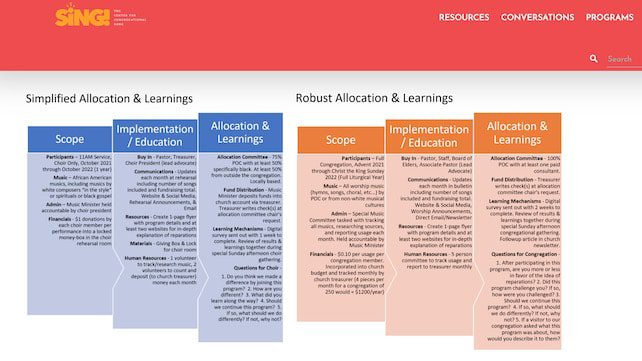Although neither DeSelms nor Groover-Flores calls the project in which they are collaborating “reparations,” others use that term in connection with prospective projects, which may involve a new budget item or a regular collection or donation per spiritual.
The Hymn Society’s Center for Congregational Song devotes four pages on its website to a “Reparations Royalty Pilot,” to help congregations consider a series of questions to determine how they might pursue such a program. Brian Hehn, the center’s director, said more than 30 congregations have expressed interest in the concept since September 2021, and about 15 churches were represented at a related Zoom meeting in August.
“Ultimately, much of the conversation centered around how to make sure that it doesn’t become a purely transactional model,” Hehn said in an email to Religion News Service, noting the goal of building relationships across racial and socio-economic lines.
The pilot was inspired by Adam Waite, music minister at Denver’s Montview Boulevard Presbyterian Church, which approved a $250 contribution to a fund “each and every time a Negro Spiritual is sung in worship or concert by the congregation or choir, beginning September 2022 through May 2023.” It plans to donate to nonprofits related to Black artists and will then assess its own pilot program to determine if it will continue.
Waite, who said he and DeSelms came up with the same idea around the same time, said the leadership of his predominantly white church had been looking for a next step after an anti-racism workshop. He recalled a long-ago explanation to his father, a New York brew pub owner, about why he had to pay royalties to companies like ASCAP (the American Society of Composers, Authors, and Publishers) and BMI (a music rights management company) for the music that played in his establishment.
“It’s a reminder to us of the contributions that the spirituals have made,” he said of the new program that puts a sharper focus on a music genre that has significantly influenced Protestant music in particular and American music in general.

On a denominational level, the United Church of Canada is using what it calls “a theology of copyright” in its development of a new hymn resource called “Then Let Us Sing!” The church hopes to hold copyright for some of the songs in collaboration with All Africa Conference of Churches and Federación Universal de Movimientos Estudiantiles Cristianos en América Latina y el Caribe (World Student Christian Federation in Latin America and the Caribbean) so they get royalties for hymns originating from countries like Cameroon and Uruguay.
“Then Let Us Sing!” planners also hope to give royalties to African American musicians who provide new arrangements to spirituals, said the Rev. Alydia Smith, the church’s program coordinator of worship and music.
DeSelms and other creators of spirituals royalty projects say they have tried not to rush into them to ensure they handled the process carefully, seeking advice from experts, collaborating with eventual recipients and leaving the decisions about how funds would be used to them.
“This is not charity; this is a payment, a royalty payment,” said DeSelms, whose church is triply aligned with the United Church of Christ, the United Methodist Church and American Baptist Churches USA. “And we have owed it for a long time.”
For her part, Earle, the Hamilton-Garrett student, is appreciative of the attention to the music she sings a cappella with her choir members.
“It’s a real honor,” she said. “It’s like an opportunity for our history to be known and not go unnoticed.”

RELATED: Chicago church’s plan to fast from ‘whiteness’ for Lent gets pushback
This article originally appeared on ReligionNews.com.


